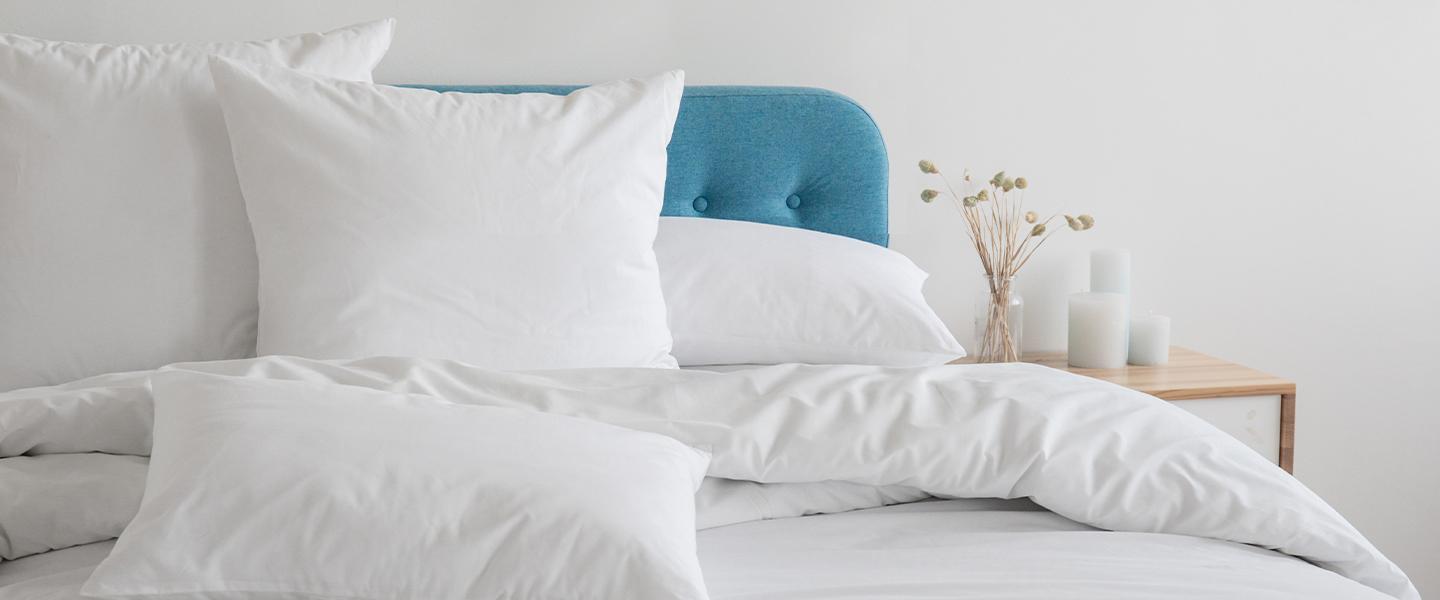How to Sleep with a Cough or a Blocked Nose
Sleeping with a runny nose or a bad cough is not ideal for getting a good night's sleep, but there are a few ways you can improve your ability to rest despite these discomforts. By addressing the challenges posed by nasal congestion or persistent coughing, it's possible to create an environment conducive to better sleep.
From simple adjustments to daytime habits to creating a cosy zone with a comfy duvet and supportive pillow, managing these symptoms before bedtime can make a notable difference in your sleep quality.
Below we’ll explore a range of approaches that can help you find relief if you’re experiencing a winter cold and enjoy a more restful night's sleep.
What to do during the day if you have a cold
- Stay hydrated
One simple yet extremely effective method is keeping yourself hydrated throughout the day. Staying well-hydrated helps your nasal passages and throat produce thin mucus. This thinning makes it easier for mucus to leave your body, reducing the sensation of congestion and coughing.
Dry air can irritate your throat, exacerbating coughing. Drinking fluids helps keep your throat moist, providing relief from soreness or irritation. Proper hydration supports your immune system, aiding in your body's ability to fight off infections which could be causing the cough or nasal congestion.
What to drink:
- Water is key: Opt for water as your primary fluid intake. It's the best choice to maintain hydration levels. You can't go wrong with water!
- Soups and herbal teas: These not only provide hydration but can also offer soothing effects on the throat and sinuses.
- Fruit and vegetables: Many fruits and vegetables have high water content and can contribute to your overall hydration levels.
- Use a nasal decongestant
Using a nasal decongestant during the day can help relieve congestion, making it easier to breathe and reducing discomfort caused by a blocked nose. There are two primary types of decongestants: nasal sprays and oral medications.
Remember, while nasal decongestants can offer effective relief, it's essential to use them as directed and not rely on them as a long-term solution. If nasal symptoms persist or worsen, it's advisable to seek guidance from a healthcare professional for appropriate treatment options.
- Eat something spicy
Although this may seem like an odd suggestion, incorporating spicy foods into your diet can be surprisingly beneficial when dealing with a cough or a blocked nose.
A compound called capsaicin plays a pivotal role in spicy foods. This compound acts as a natural decongestant by stimulating mucus production, thinning nasal secretions, and facilitating drainage. As a result, nasal passages clear up, reducing inflammation and making it easier to breathe.
Capsaicin's numbing effect can temporarily alleviate persistent coughing or throat irritation. Including spices like chilli peppers, cayenne, ginger, or horseradish in your meals—perhaps in spicy soups or curries—can be a great way to spice up your life.
However, remember that spicy foods might cause you to become a lot more thirsty, so you should drink plenty of water or herbal teas throughout the day to make sure you stay hydrated.
- Keep pets off the bed
While having a furry companion by your side can be comforting, it might be beneficial to keep them away from your bed, especially if you’re ill!
Pets can carry allergens that have the potential to trigger or worsen nasal congestion and coughing, especially for individuals with allergies. Limiting their access to the bed can significantly reduce exposure to these allergens, minimising symptoms during sleep.
Maintaining a clean sleeping environment is crucial for better sleep hygiene. Also, pets can be restless or disruptive during the night, causing movements, noises, or even occupying space on the bed. These interruptions can lead to broken sleep, which can contribute to feeling tired and groggy.
Consider creating a separate sleeping area for your pets with a comfy pet bed or pet blanket to improve sleep quality.
- Resist the urge to blow your nose
While blowing your nose might initially feel relieving, it carries risks of pushing mucus deeper into the sinuses, creating worse congestion and potential sinus-related pain or infections. If you're constantly blowing your nose, you could dry up your nasal passages, making them more prone to nosebleeds.
Instead of aggressive blowing, allow mucus to drain naturally. Gentle clearing of nasal passages using saline sprays or rinses can be a great solution that offers a more comfortable approach to drainage without causing irritation, promoting better sleep.
What to do during the evening when you have a cold
- Wash your bedding
If you're experiencing cold or flu symptoms, sleeping on a clean bed can work wonders for your health.
Bedding accumulates allergens, dust, and germs that can make you feel worse and disrupt sleep. Regularly washing your bedding, including duvets, mattress toppers, mattress protectors and blankets, frequently can lead to a better night's sleep.
This thorough cleaning helps eliminate potential irritants, providing a fresher and more hygienic place to rest. It not only supports your recovery by minimising exposure to allergens but also promotes better sleep, crucial for healing your body.
- Avoid caffeine after 2 pm
Steering clear of caffeine in the later part of the day helps some people sleep better. Caffeine acts as a stimulant, disrupting the sleep cycle and making it harder to fall asleep soundly.
Instead, opt for decaffeinated beverages or herbal teas to help you relax and prepare your body for a restful night.
- Have a hot drink
If you're looking for an alternative to caffeine, there are lots of other hot drinks that can relieve throat pain and calm your nose at night. Warm teas can ease throat irritation, providing comfort before bedtime and potentially helping to minimise cough symptoms during the night.
Some alternatives to caffeine that can provide soothing effects before bedtime include:
- Herbal teas: Chamomile, peppermint, ginger, or liquorice teas are known for their soothing properties.
- Warm water with honey: Honey has antimicrobial properties and can coat the throat, providing relief from coughing and soothing a sore throat.
- Warm lemon water: Lemon water can be calming and is known for its high vitamin C content, which can support the immune system.
- Hot soup: Although not a traditional beverage, hot soup can offer substantial relief. The warmth and steam from the soup can help clear nasal passages and soothe a sore throat.
- Take a warm shower or bath
Taking a shower before bed isn't just about getting clean - it can do wonders for your stuffy nose. The steam from the shower or bath works like magic to relieve sinus pressure and ease that blocked nose feeling.
It's a comforting pre-sleep ritual, melting away the day's congestion and setting the stage for a more peaceful and uninterrupted night's sleep.
What to do before bedtime
- Use a humidifier in your bedroom
Adding a humidifier into your sleep space can be a game-changer, particularly when contending with a cough or a congested nose. This nifty device improves air quality while helping to prevent mould growth in your bedroom from excess moisture.
By maintaining a balanced humidity level, humidifiers soothe irritated tissues, providing relief from congestion. This added comfort creates a more restorative sleep experience, meaning you’ll wake up feeling refreshed and revitalised.
- Keep your bedroom cosy and dark
Unless you prefer to sleep with the lights on, creating a cosy and dark room can signal to your body that it's time to unwind. Using a thermostat, you can keep your bedroom between 15.6 and 19.4°C to prevent overheating or open windows slightly to allow fresh air to circulate.
In terms of light, the darkness aids in the production of melatonin (sleep hormone) to facilitate deeper and more restful slumber. Bright lighting can make it difficult for your body to know when to rest, so having fairly low or no lighting in your room is a good idea.
- Say no to alcohol - especially after 2 pm
Depending on your drinking habits, you might want to consider not drinking alcohol if you're experiencing cold symptoms. Alcohol can disrupt sleep patterns and interfere with the quality of sleep, leading to more frequent awakenings and potentially exacerbating symptoms. Steering clear of alcohol, particularly in the latter part of the day, can notably enhance sleep quality.
- Consider a nose strip
Ever tried those little adhesive strips that go on the bridge of your nose? These strips work by giving your nose a bit of extra support, which helps you breathe easier than other over-the-counter solutions. They're hassle-free and don't involve sprays or medicines, offering a simple way to potentially ease snoring and make your night's sleep more comfortable.
- Prop up your head
Whether adding extra pillows or adjusting your sleeping position, elevating your head can be a simple yet effective way of finding relief. This small adjustment works by preventing mucus from collecting in your nose, allowing it to flow more freely.
This minor tweak before bedtime can lead to a more restful sleep, making your breathing feel smoother and more comfortable throughout the night.
To find the best sleeping positions for better breathing, check out our guide!
Keep your bedding fresh with Sleepseeker
If you're experiencing a cold virus, sleep problems or other symptoms, it may be worth seeking medical professionals who can provide you with the best solutions if you notice things getting worse.
At Sleepseeker, we want to ensure you have a good night's sleep, which is why we provide cosy bedding perfect for all seasons. For expert tips and advice on choosing the perfect pillow or finding the right mattress topper, check out our blog.
FAQs
How can I stop coughing at night?
Stopping a nighttime cough can be challenging, but there are strategies to help keep it under control:
- Stay hydrated: Drink plenty of fluids throughout the day to keep your throat moist and alleviate coughing.
- Use a humidifier: Adding moisture to the air with a humidifier can ease throat irritation caused by dry air, potentially reducing coughing.
- Elevate your head: Sleeping with your head slightly elevated using extra pillows can help reduce postnasal drip and coughing.
- Avoid irritants: Steer clear of triggers like smoke, strong fragrances, or allergens that can aggravate your throat and lead to coughing.
- Try cough remedies: Consider over-the-counter cough suppressants or soothing home remedies like honey and herbal teas to ease nighttime coughing.
What sleep position helps stop coughing?
Sleeping in an elevated position, such as propping yourself up with extra pillows, can often help alleviate nighttime coughing. This position prevents mucus from pooling in the throat, reducing the likelihood of coughing caused by postnasal drip.
Additionally, lying on your side rather than your back might assist in reducing coughing episodes, as it can minimise acid reflux and reduce pressure on the lungs, potentially decreasing the urge to cough during the night. Ultimately, finding a sleep position that keeps you comfortable and minimises throat irritation may help reduce nighttime coughing.
What's trending now...
-
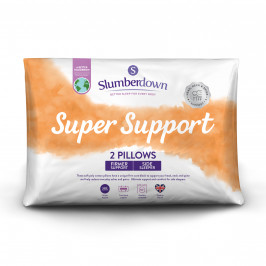
Slumberdown Super Support Firm Support Side Sleeper Pillow, 2 Pack
£12.00
Shop Now -
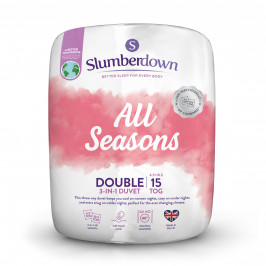
Slumberdown All Seasons 3-in-1 Combi 15 Tog (10.5 + 4.5 Tog) Double Duvet
£30.00
Shop Now -

Slumberdown Wonderfully Warm Dual Control Electric Blanket - Double
£77.00
Shop Now -

Slumberdown Waterproof Mattress Protector - Double
£17.50
Shop Now -

Slumberdown Sleep Soundly Mattress Topper, Single
£22.00
Shop Now -

Slumberdown Paws for Slumber Grey Pet Bed, Extra Large
£49.50
Shop Now -

Slumberdown Paws for Slumber Medium Pet Bed Spare Cover, Grey
£17.00
Shop Now -

Slumbalux Hollowfibre Toy Stuffing Bag, 2 KG
£17.00
Shop Now -

Slumberdown Anti Allergy Pillow Protector, 2 Pack
£15.00
Shop Now -

Slumberdown Unwind Outside Endless Lazing Waterproof Blanket, Light Green
£46.50
Shop Now -
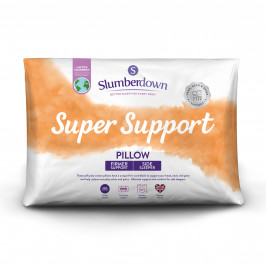
Slumberdown Super Support Firm Support Side Sleeper Pillow
From: £12.00
Shop Now -
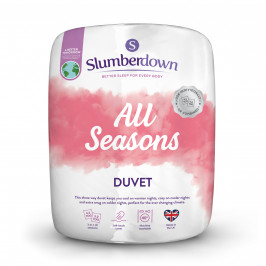
Slumberdown All Seasons 3-in-1 Combi 15 Tog (10.5 + 4.5 Tog) Duvet
From: £25.00
Shop Now -

Slumberdown Wonderfully Warm Electric Blanket
From: £47.00
Shop Now -

Slumberdown Waterproof Mattress Protector
From: £16.50
Shop Now -

Slumberdown Sleep Soundly Mattress Topper
From: £22.00
Shop Now -

Slumberdown Paws for Slumber Extra Large Pet Bed
From: £49.50
Shop Now -

Slumberdown Paws for Slumber Medium Pet Bed Spare Cover
From: £17.00
Shop Now -

Slumbalux Hollowfibre Toy Stuffing Bag
From: £10.00
Shop Now -

Slumberdown Anti Allergy Pillow Protector
From: £15.00
Shop Now -

Slumberdown Unwind Outside Endless Lazing Waterproof Blanket
From: £46.50
Shop Now -

Slumberdown Super Support Firm Support Side Sleeper Pillow, 4 Pack
£25.00
Shop Now


